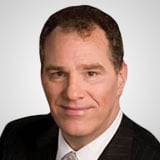OPEC Plus says it will do what is necessary to balance the global oil market but stopped short of making any firm commitments to extending production cuts, says Phil Flynn of the PRICE Futures Group.
Still, they say they will be proactive and are on top of it, and no one should doubt their resolve in what they describe as a precious oil market. Again, the Saudi energy minister warned speculators that shorting the oil market might be dangerous to your pocketbook, continuing a long-standing Saudi tradition of blaming speculators for their oil woes.
The Saudi energy minister said that, "I recognize the need for modern risk management and the useful role of derivative markets play in enabling market participants to manage risk, [but] destabilizing speculation and manipulation have no place in a responsible and efficient market." So says the guy who helped manage an oil price war that brought the global oil industry to its knees in the throes of a worldwide pandemic emergency.
In the meantime, the crude oil market is stuck in a tight trading range. Signs of improvements in demand are offset by concerns of a second wave of the coronavirus.
Some cheered when more than 1.0 million passengers were screened by the Transportation Security Administration on Sunday, marking a new pandemic high for airline travel. Still, the oil trade knows we have a long way to go. Jet fuel demand is a good thing as the petroleum industry has to deal with a global jet fuel glut. Distillate demand had an increase last week, and traders are hoping it continues in this week's report.
Reports of firming cash prices in Asia signify that Chinese demand remains and a robust market is recovering. That should help OPEC plus as it will do what it takes. Gasoline demand seems to be stalling in the US as bad weather and worries about the virus cause a bit of a setback.
Today the oil market is priced in dollars, but could that be replaced with a dollar digital currency? It was reported that Federal Reserve Chairman Jerome Powell said Monday that the Fed is open to collaborating with the private sector on a possible digital US dollar, but reiterated that the central bank has not committed to launching one. "We will have lots of conversations with industry and stakeholder engagement, and that'll help us in our work on digital currencies and cross-border payments," Powell said in an International Monetary Fund panel.
Powell said private sector initiatives like Facebook's Libra project had accelerated central banks' interest in setting up their digital currencies. Yet the problem with Facebook Libra is privacy. The allure of Bitcoin is privacy. Democrats do not want Republicans to know how they spend their money. And vice versa. The reason why the dollar is one of the strongest currencies is that it is the most private. Hence the most successful cryptocurrency will be the one that is the most private and secure.
Full disclosures, I am invested in a CloudCoin and Raida technology that I think fits the bill. Raida technology is a patented technology that is the type of technology that the Fed will want to establish. Safe, secure, fast, and private. It is better than traditional blockchain and is quicker and more secure.
Powell cautioned that the Fed faces "difficult policy and operational questions," such as the monetary policy implications of a digital dollar. Powell also listed illicit activity and cyber-attacks as risks." I believe that Raida technology can reduce those risks.
Learn more about Phil Flynn by visiting Price Futures Group.











